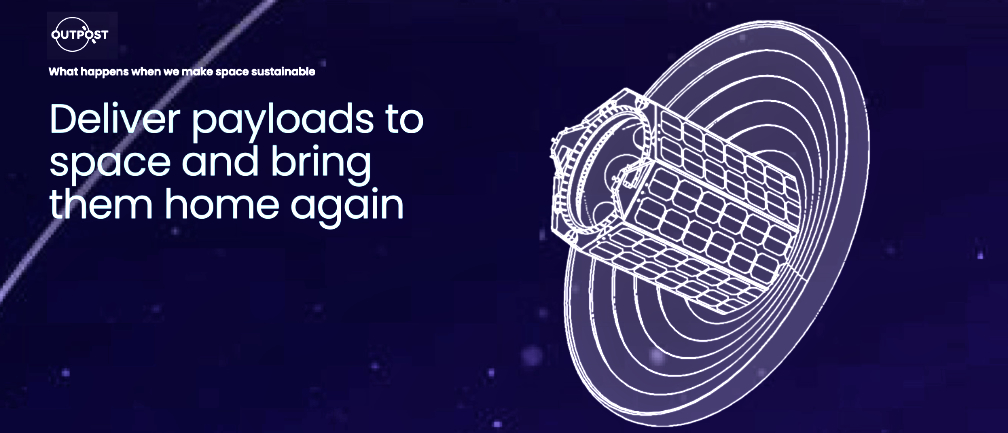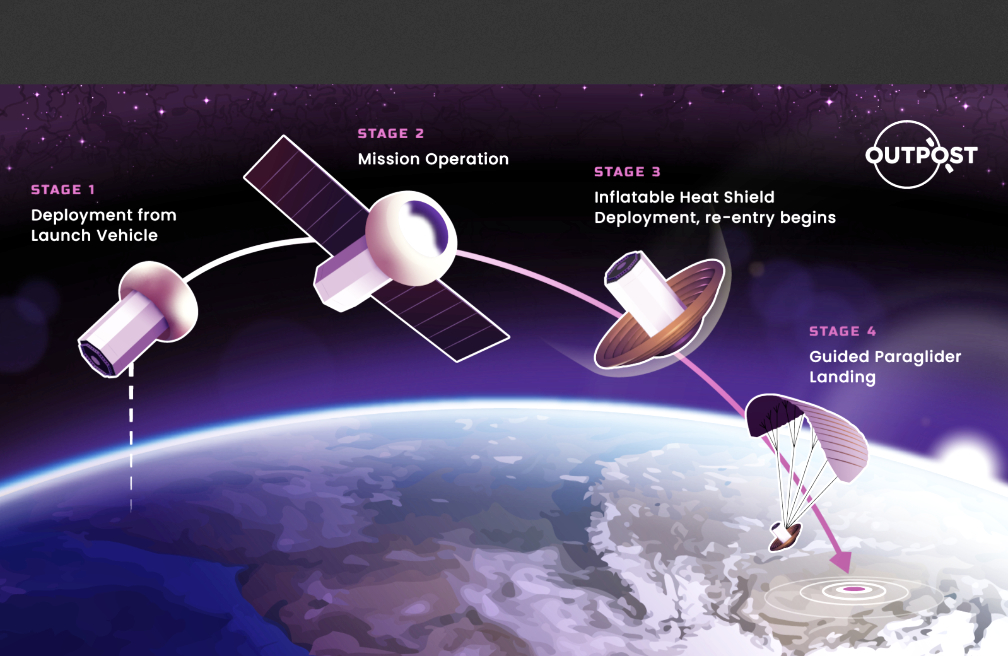
Outpost Technologies Corporation has been awarded of a Phase 1 SBIR Ignite Contract with NASA to develop the Cargo Ferry, an adaptation of the company’s Earth returning Ferry satellite, to deliver cargo from space stations back to Earth.

The development of Outpost’s Ferry and Cargo Ferry also uses a NASA partnership through a Reimbursable Space Act Agreement (SAA). This partnership enables collaboration on developing NASA’s Hypersonic Inflatable Aerodynamic Decelerator (HIAD) to provide payload Earth return capabilities from orbit.

Applications of the Cargo Ferry include Earth return of non-human cargo, scientific samples, small payloads and important research. For the Cargo Ferry project, Outpost will team with Nanoracks and Spaceflight in an effort to bring the technology to mission ready as quickly as possible.
The ISS has limitations on stowage capacity, requiring tough decisions by the ISS program office each time a new payload is manifested. By downmassing stowed cargo, more room is made for new science and R&D on station.
Dedicated payload and cargo return is one of the few remaining items left unsolved for commercial LEO destinations (CLDs) business models to close. Companies and institutions looking to iterate quickly in the space environment need fast Earth return. As Outpost develops the Cargo Ferry it sets its sights on a future human rated version that may one day provide a solution for emergency evacuations from commercial space stations.
The Cargo Ferry will be smaller than fixed heat shield systems and be more suitable to CLDs which are expected to be smaller than ISS. It will be scalable to heavier cargo with less of a direct increase in mass and volume than a fixed heat shield, as the heat shield is collapsed for all mission phases until the very final entry. This means it would take up less volume during launch to LEO, and while stored at CLD.
“The Outpost Ferry makes prioritized Earth return of payloads possible, and with our large payload mass fraction does it for very low cost,” said Outpost Founder and CEO, Jason Dunn. “Driving down the cost of Earth return could open the door to more throughput on the ISS National Lab while also enabling the broader Low-Earth orbit economy to flourish.”
Outpost, the sustainable space company, is spearheading a new way of space development that’s reusable, not disposable. With its very first product, Outpost is building reusable satellites that deliver customer payloads to space and back to Earth. By flying payloads with Outpost, users can put their product into space, iterate, and learn how they performed in space. Outpost facilitates iteration in space at a quicker pace than anything else available. The future of space (and Earth) requires a focus on low-cost reusability to create a sustainable industry. At Outpost, we are proud to be leading the charge to develop products with sustainability as the core design.
